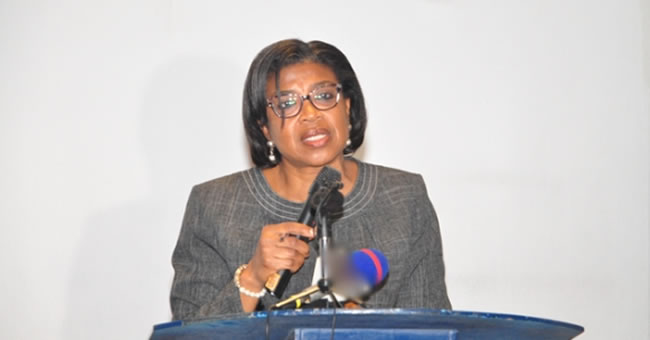Business
Alarming! IMF says Nigeria spends over 50% of its revenue to service debts

The International Monetary Fund (IMF) has raised the alarm that Nigeria currently spends over 50% of its revenue to service debts.
According to the IMF, the situation is unhealthy because it does not give the country room to spend in other necessary areas.
The Senior Resident Representative and Mission Chief in Nigeria, African Department of the IMF, Amine Mati, stated this at the presentation of the Regional Economic Outlook for Sub-Saharan Africa – Capital Flows and the Future of Work in Abuja on Thursday.
Mati, who put Nigeria’s growth rate for 2018 at 1.9 per cent, also said that although Nigeria’s debt to Gross Domestic Product remained low at between 20 and 25 per cent, the country spent a high proportion of its revenue on debt servicing as a result of low revenue generation.
According to him, for Nigeria, the debt servicing to revenue ratio was more than 50 per cent while for sub-Saharan Africa, the rate was about 10 per cent; a figure he said was too high and akin of what the region went through in the period following debt relief at the beginning of the 21st century.
Mati said: “Security issues are exacting a significant human toll in a number of countries. Debt to GDP ratio is increasing in the past five years. Public debt is diverting more resources towards debt servicing.
“The interest rate has gone up to where they used to be around the year 2000 before the debt relief. The adjustment has relied on spending compression rather than revenues mobilisation. Meeting the Sustainable Development Goals will require stronger growth and more financing.”
Read also: Fashola defends Nigeria’s high debt profile, says it’s good debt
The IMF representative also harped on the need for sub-Sahara Africa to create 20 million jobs every year, adding that the situation was even more precarious with the Fourth Industrial Revolution lurking around.
“Policies are needed today to create more jobs in the coming years. Twenty million jobs are required every year in Sub-Saharan Africa to meet the SDGs. Job creation is complicated by uncertainty to which technology replaces labour,” he said.
However, the Director General of the Debt Management Office, Patience Oniha, in her remarks at the event, defended the action of the Federal Government in borrowing, insisting that it was important for the government to borrow especially given the nation’s low revenue generating capacity.
According to her, without sufficient revenue and with the recession that the country found itself between 2016 and 2017, the government had no option but to borrow and spend the country out of recession.
Oniha said: “We are borrowing to be able to increase forex availability. The government needed to borrow in order to spend the country out of recession.”
Oniha also disclosed that the government had proposed to borrow N1.5tn in the 2019 fiscal year, adding that borrowing had reduced as the nation was now out of recession, adding that in 2016, the Federal Government borrowed N2.5tn which was approved by the National Assembly while it proposed to borrow N1.64tn in the current financial year.
She further revealed that in 2019, the proposed debt of N1.5tn had gone further down, adding that the government had taken steps to diversify the economy and increase tax collection which she said was lower than in most countries of the Economic Community of West African States.
Join the conversation
Support Ripples Nigeria, hold up solutions journalism
Balanced, fearless journalism driven by data comes at huge financial costs.
As a media platform, we hold leadership accountable and will not trade the right to press freedom and free speech for a piece of cake.
If you like what we do, and are ready to uphold solutions journalism, kindly donate to the Ripples Nigeria cause.
Your support would help to ensure that citizens and institutions continue to have free access to credible and reliable information for societal development.
























